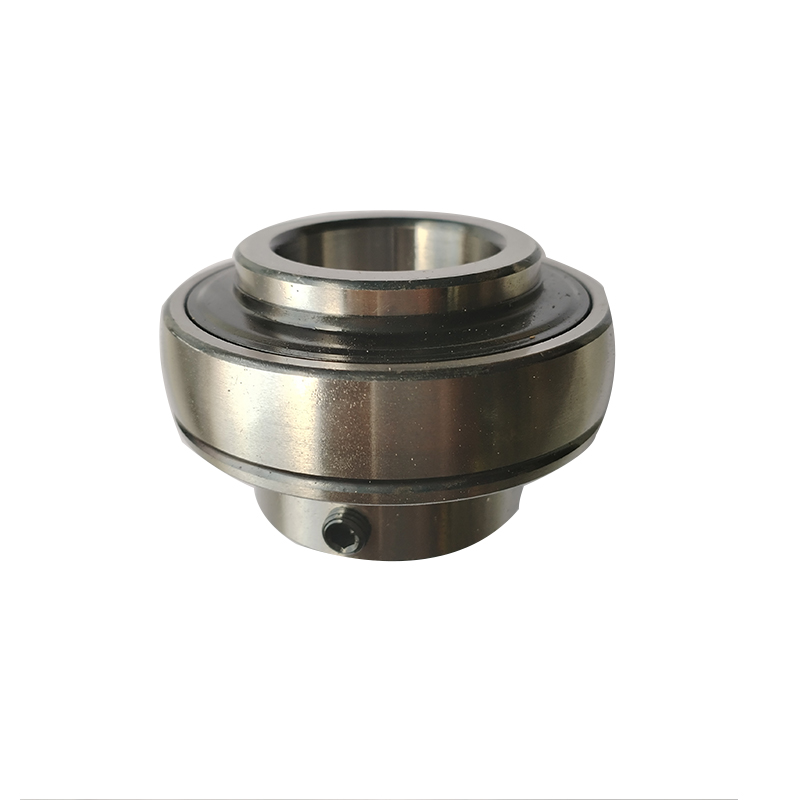Dec . 25, 2024 17:36 Back to list
Design and Applications of Custom Self-Aligning Spherical Bearings for Enhanced Performance
Custom Self-Aligning Spherical Bearings A Comprehensive Overview
Self-aligning spherical bearings are essential components in various mechanical systems, known for their ability to accommodate misalignment between shafts and housings. This feature makes them particularly useful in applications where alignment cannot be perfectly maintained, as in the case of heavy machinery, automotive systems, and industrial equipment. Custom self-aligning spherical bearings can enhance performance, efficiency, and longevity in such applications.
Understanding Self-Aligning Spherical Bearings
Self-aligning spherical bearings consist of an inner ring (bearing ring) that fits onto a shaft and an outer ring that can pivot freely. The inner ring usually features a spherical surface, while the outer ring has a matching spherical bore. This design allows for angular misalignments, reducing the risk of wear and tear due to improper alignment in operating conditions.
These bearings are typically made from various materials such as steel, stainless steel, or even plastic composites for specific applications. Their ability to operate under various environmental conditions—including high temperatures and exposure to corrosive agents—depends largely on the choice of material.
Customization Options
The customization of self-aligning spherical bearings has become essential in today's manufacturing and engineering sectors. Businesses often require bearings tailored to fit unique applications, which standard off-the-shelf bearings cannot adequately fulfill.
1. Size and Dimensions Custom bearings can be designed with specific diameters, lengths, and widths to fit machinery dimensions. This ensures optimal performance and minimizes the risk of mechanical failure.
2. Material Selection Depending on the working environment, customers can choose materials that offer resistance to chemicals, heat, or wear. For example, custom bearings made from stainless steel are ideal for corrosive environments, while those crafted from high-performance polymers can resist wear and high temperatures.
custom self aligning spherical bearing

3. Load Capacities Different applications require bearings that can withstand varying load capacities. Custom designs can be engineered to bear higher loads, making them suitable for heavy-duty applications in manufacturing or construction machinery.
4. Sealing and Shielding Options To protect against dust, dirt, and moisture ingress, additional sealing features can be incorporated into the design. This increases the lifespan and reliability of the bearings in demanding conditions.
Applications of Custom Self-Aligning Spherical Bearings
Custom self-aligning spherical bearings find applications across various industries, including
- Automotive In vehicles, these bearings support suspension systems, steering columns, and transmission components, allowing for smooth operation even when subjected to rough terrain.
- Manufacturing Equipment They are critical in conveyor systems, robotic arms, and automated machinery where precision alignment is necessary for operational efficiency.
- Aerospace In aircraft and spacecraft, custom bearings support moving parts, ensuring they can withstand extreme conditions while allowing for flexibility in alignment.
Conclusion
Custom self-aligning spherical bearings play a pivotal role in modern engineering and manufacturing. Their unique ability to accommodate misalignment combined with customization options makes them ideal for a wide range of applications. By investing in tailor-made bearings, companies can enhance the performance, safety, and durability of their machinery, ultimately leading to increased productivity and cost efficiency. As industries continue to evolve, the need for bespoke engineering solutions like custom spherical bearings will undoubtedly grow, ensuring that they remain at the forefront of mechanical innovation.
Latest news
-
25MM 2 BOLT UCFLX05-14 Flange bearing unit( oval)
NewsMar.07,2025
-
4 bolt UCF 200 series Pillow block bearings
NewsMar.07,2025
-
25MM 2 BOLT UCFLX05-14 Flange bearing unit( oval)
NewsMar.07,2025
-
UCF216-50 4-Bolt Flange Housing Square Bearing
NewsMar.07,2025
-
25MM 2 BOLT UCFLX05-14 Flange bearing unit( oval)
NewsMar.07,2025
-
spherical roller bearing material exporter
NewsMar.07,2025





